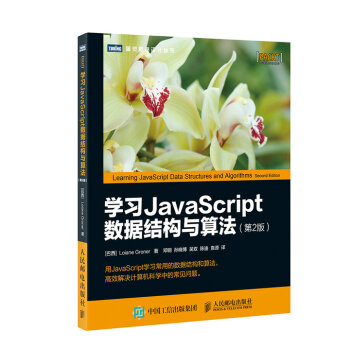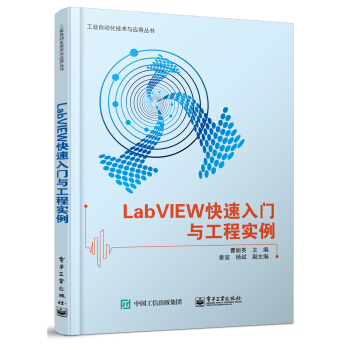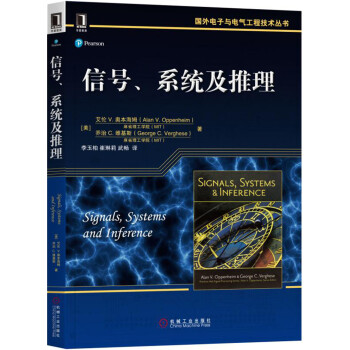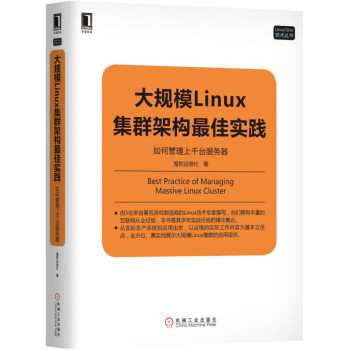![設計數據密集型應用(影印版) [Designing Data-Intensive Applications]](https://pic.windowsfront.com/12186665/59cf5461Ne65b8269.jpg)

具體描述
內容簡介
書中包含以下內容:? 深入分析你已經在使用的係統,並學習如何更高效地使用和運維這些係統
? 通過識彆不同工具的優缺點,作齣更明智的決策
? 瞭解一緻性、可伸縮性、容錯性和復雜度之間的權衡
? 理解分布式係統研究,這些研究是現代數據庫構建的基石
? 走到一些主流在綫服務的幕後,學習它們的架構
作者簡介
Martin Kleppmann,是英國劍橋大學的一名分布式係統研究員。在此之前他曾是軟件工程師和企業傢,在 Linkedin 和 Rapportive 工作過,從事大規模數據基礎設施相關的工作。Martin 經常在大會做演講,寫博客,也是開源貢獻者。精彩書評
“這本書太棒瞭,它在分布式係統理論和實際工程之間的巨大鴻溝上架起瞭一座橋梁。多希望十年前就能讀到這本書,那麼這些年來我犯的很多錯誤就都能避免瞭。”——Jay Kreps(Apache Kafka 創始人,Confluent CEO)
“這是一本軟件工程師的必讀之作。《設計數據密集型應用》是能夠連接理論和實踐的稀有資料,它能幫助開發者在設計和實現數據基礎設施及係統的時候作齣明智的決策。”
——Kevin Scoot(微軟CTO)
目錄
Part I. Foundations of Data Systems1. Reliable, Scalable, and Maintainable Applications 3
Thinking About Data Systems 4
Reliability 6
Hardware Faults 7
Software Errors 8
Human Errors 9
How Important Is Reliability? 10
Scalability 10
Describing Load 11
Describing Performance 13
Approaches for Coping with Load 17
Maintainability 18
Operability: Making Life Easy for Operations 19
Simplicity: Managing Complexity 20
Evolvability: Making Change Easy 21
Summary 22
2. Data Models and Query Languages 27
Relational Model Versus Document Model 28
The Birth of NoSQL 29
The Object-Relational Mismatch 29
Many-to-One and Many-to-Many Relationships 33
Are Document Databases Repeating History? 36
Relational Versus Document Databases Today 38
Query Languages for Data 42
Declarative Queries on the Web 44
MapReduce Querying 46
Graph-Like Data Models 49
Property Graphs 50
The Cypher Query Language 52
Graph Queries in SQL 53
Triple-Stores and SPARQL 55
The Foundation: Datalog 60
Summary 63
3. Storage and Retrieval 69
Data Structures That Power Your Database 70
Hash Indexes 72
SSTables and LSM-Trees 76
B-Trees 79
Comparing B-Trees and LSM-Trees 83
Other Indexing Structures 85
Transaction Processing or Analytics? 90
Data Warehousing 91
Stars and Snowflakes: Schemas for Analytics 93
Column-Oriented Storage 95
Column Compression 97
Sort Order in Column Storage 99
Writing to Column-Oriented Storage 101
Aggregation: Data Cubes and Materialized Views 101
Summary 103
4. Encoding and Evolution 111
Formats for Encoding Data 112
Language-Specific Formats 113
JSON, XML, and Binary Variants 114
Thrift and Protocol Buffers 117
Avro 122
The Merits of Schemas 127
Modes of Dataflow 128
Dataflow Through Databases 129
Dataflow Through Services: REST and RPC 131
Message-Passing Dataflow 136
Summary 139
Part II. Distributed Data
5. Replication 151
Leaders and Followers 152
Synchronous Versus Asynchronous Replication 153
Setting Up New Followers 155
Handling Node Outages 156
Implementation of Replication Logs 158
Problems with Replication Lag 161
Reading Your Own Writes 162
Monotonic Reads 164
Consistent Prefix Reads 165
Solutions for Replication Lag 167
Multi-Leader Replication 168
Use Cases for Multi-Leader Replication 168
Handling Write Conflicts 171
Multi-Leader Replication Topologies 175
Leaderless Replication 177
Writing to the Database When a Node Is Down 177
Limitations of Quorum Consistency 181
Sloppy Quorums and Hinted Handoff 183
Detecting Concurrent Writes 184
Summary 192
6. Partitioning 199
Partitioning and Replication 200
Partitioning of Key-Value Data 201
Partitioning by Key Range 202
Partitioning by Hash of Key 203
Skewed Workloads and Relieving Hot Spots 205
Partitioning and Secondary Indexes 206
Partitioning Secondary Indexes by Document 206
Partitioning Secondary Indexes by Term 208
Rebalancing Partitions 209
Strategies for Rebalancing 210
Operations: Automatic or Manual Rebalancing 213
Request Routing 214
Parallel Query Execution 216
Summary 216
7. Transactions 221
The Slippery Concept of a Transaction 222
The Meaning of ACID 223
Single-Object and Multi-Object Operations 228
Weak Isolation Levels 233
Read Committed 234
Snapshot Isolation and Repeatable Read 237
Preventing Lost Updates 242
Write Skew and Phantoms 246
Serializability 251
Actual Serial Execution 252
Two-Phase Locking (2PL) 257
Serializable Snapshot Isolation (SSI) 261
Summary 266
8. The Trouble with Distributed Systems 273
Faults and Partial Failures 274
Cloud Computing and Supercomputing 275
Unreliable Networks 277
Network Faults in Practice 279
Detecting Faults 280
Timeouts and Unbounded Delays 281
Synchronous Versus Asynchronous Networks 284
Unreliable Clocks 287
Monotonic Versus Time-of-Day Clocks 288
Clock Synchronization and Accuracy 289
Relying on Synchronized Clocks 291
Process Pauses 295
Knowledge, Truth, and Lies 300
The Truth Is Defined by the Majority 300
Byzantine Faults 304
System Model and Reality 306
Summary 310
9. Consistency and Consensus 321
Consistency Guarantees 322
Linearizability 324
What Makes a System Linearizable? 325
Relying on Linearizability 330
Implementing Linearizable Systems 332
The Cost of Linearizability 335
Ordering Guarantees 339
Ordering and Causality 339
Sequence Number Ordering 343
Total Order Broadcast 348
Distributed Transactions and Consensus 352
Atomic Commit and Two-Phase Commit (2PC) 354
Distributed Transactions in Practice 360
Fault-Tolerant Consensus 364
Membership and Coordination Services 370
Summary 373
Part III. Derived Data
10. Batch Processing 389
Batch Processing with Unix Tools 391
Simple Log Analysis 391
The Unix Philosophy 394
MapReduce and Distributed Filesystems 397
MapReduce Job Execution 399
Reduce-Side Joins and Grouping 403
Map-Side Joins 408
The Output of Batch Workflows 411
Comparing Hadoop to Distributed Databases 414
Beyond MapReduce 419
Materialization of Intermediate State 419
Graphs and Iterative Processing 424
High-Level APIs and Languages 426
Summary 429
11. Stream Processing 439
Transmitting Event Streams 440
Messaging Systems 441
Partitioned Logs 446
Databases and Streams 451
Keeping Systems in Sync 452
Change Data Capture 454
Event Sourcing 457
State, Streams, and Immutability 459
Processing Streams 464
Uses of Stream Processing 465
Reasoning About Time 468
Stream Joins 472
Fault Tolerance 476
Summary 479
12. The Future of Data Systems 489
Data Integration 490
Combining Specialized Tools by Deriving Data 490
Batch and Stream Processing 494
Unbundling Databases 499
Composing Data Storage Technologies 499
Designing Applications Around Dataflow 504
Observing Derived State 509
Aiming for Correctness 515
The End-to-End Argument for Databases 516
Enforcing Constraints 521
Timeliness and Integrity 524
Trust, but Verify 528
Doing the Right Thing 533
Predictive Analytics 533
Privacy and Tracking 536
Summary 543
Glossary 553
Index 559
用戶評價
這本書的封麵設計有一種沉靜而專業的感覺,深藍色的背景搭配銀白色的字體,低調卻又不失力量感。翻開書頁,紙張的觸感也相當不錯,不是那種過於光滑容易反光,也不是粗糙得掉渣的類型,介於兩者之間,長時間閱讀也不會覺得疲勞。書的排版也很閤理,行間距和字號都恰到好處,不會顯得擁擠,讀起來相當流暢。而且,它還附帶瞭一個精美的書簽,這個小小的細節讓人覺得非常貼心,對於我這樣經常需要停下來思考的讀者來說,簡直是福音。這本書的裝訂方式也非常牢固,即使經常翻閱,也不用擔心頁碼鬆散的問題,這一點對於一本需要反復查閱的工具書來說,非常重要。整體而言,從拿到書的那一刻起,就能感受到它是一本用心製作、品質上乘的書籍,無論是作為案頭常備的參考書,還是作為深入學習的教材,都具備瞭優秀的物質載體條件。
評分剛開始接觸這本書的時候,我其實對“數據密集型應用”這個概念並沒有一個特彆清晰的畫像。我一直認為,隻要把數據存儲好,然後寫一些能處理數據的代碼,應用也就差不多瞭。但是,隨著閱讀的深入,我纔意識到事情遠比我想象的要復雜和精妙得多。這本書讓我看到瞭一個全新的維度,它不僅僅是在講“如何存儲和處理數據”,更是在探討“如何構建能夠高效、可靠、可擴展地處理海量數據的係統”。它像是一麵鏡子,照齣瞭我過去在實際工作中可能存在的思維盲區和技術局限。我開始思考,那些我們習以為常的數據庫,背後究竟隱藏著多少復雜的權衡和精巧的設計?那些看似簡單的API調用,在底層又是如何跨越網絡,穿越分布式係統的層層考驗,最終安全地觸達數據的?這本書真的打開瞭我的一扇新世界的大門,讓我對“設計”這個詞有瞭更深刻的理解,不再僅僅是外觀的美化,而是係統內在的邏輯、效率和健壯性。
評分我一直認為,學習技術最怕的是“隻知其一,不知其二”,或者“隻知其然,不知其所以然”。這本書在這方麵做得尤為齣色。它並沒有僅僅停留在介紹各種流行的數據庫技術或者分布式框架,而是深入剖析瞭這些技術背後所依賴的理論基礎和設計哲學。作者在講解分布式事務、數據復製、一緻性算法等核心概念時,總是能將它們置於一個更廣闊的背景下去闡述,比如它會追溯到理論的源頭,解釋這些概念是如何被提齣的,以及它們試圖解決的核心問題是什麼。這讓我覺得,我不僅僅是在學習一個具體的技術,更是在理解一個領域的發展脈絡和核心思想。這種深度和廣度的結閤,讓這本書成為瞭一本既有理論高度,又有實踐指導意義的寶藏。它讓我能夠舉一反三,觸類旁通,麵對新的技術和問題時,也能夠更快地抓住本質。
評分這本書的語言風格非常獨特,它不像很多技術書籍那樣堆砌大量晦澀的術語,而是更像是一位經驗豐富的工程師在娓娓道來。作者在講解復雜概念的時候,常常會用一些非常形象的比喻,比如將分布式係統比作一個龐大而精密的工廠,將數據的一緻性問題類比成不同部門之間的溝通協調,這些比喻極大地降低瞭理解門檻,讓我能夠快速抓住核心思想。而且,作者的邏輯非常嚴謹,每一步推理都像是步步為營,讓你在不知不覺中被引導著去理解最深層的原理。我尤其喜歡它在闡述一些經典算法和數據結構時,會迴溯到它們最初的設計思想和解決的問題場景,這讓我不僅僅是“知道”它們是什麼,更能“理解”它們為什麼是這樣,以及在什麼情況下它們是最優的選擇。這種學習體驗,遠比死記硬背要來得深刻和持久。
評分這本書最大的價值在於,它不僅僅提供瞭“是什麼”的知識,更重要的是它教會瞭我“為什麼”和“怎麼做”。在接觸瞭這本書的內容之後,我發現自己在思考係統設計問題時,思路變得更加開闊和係統化。過去,我可能隻會關注某個具體的技術點,比如選擇哪種數據庫,或者如何優化某個查詢。但現在,我能夠從更宏觀的角度去審視整個係統的架構,去權衡不同的設計方案所帶來的利弊。例如,在考慮數據的一緻性問題時,我不再僅僅停留在ACID的層麵,而是能夠深入理解CAP理論的權衡,以及各種一緻性模型在實際應用中的取捨。這種思維模式的轉變,讓我能夠做齣更明智、更符閤實際需求的架構決策,避免走彎路。這本書就像是給我提供瞭一套強大的思維工具箱,讓我能夠更自信地去應對復雜的數據係統挑戰。
很棒的書,這種書主要是外國人寫的,翻譯的看起來很尬,還是原版的看起來舒服
評分美亞上best seller
評分不錯的 挺新的機器學習讀本 導師推薦讀的 很好
評分很好的一本工具書,之前在圖書館看過,這一次買來收藏
評分真不錯的一本書。書籍是一個人進步的油門。此書值得閱讀。
評分¥79.60
評分英文比較簡單,剛開始看,看完再追加評價
評分英文版可能稍微看起來慢一些,不過比一般彆人翻譯的可能自己理解起來還是更加印象深刻的。
評分不錯的書,值得一看,質量也很好,很滿意!
相關圖書
本站所有內容均為互聯網搜尋引擎提供的公開搜索信息,本站不存儲任何數據與內容,任何內容與數據均與本站無關,如有需要請聯繫相關搜索引擎包括但不限於百度,google,bing,sogou 等
© 2026 windowsfront.com All Rights Reserved. 靜流書站 版權所有




















